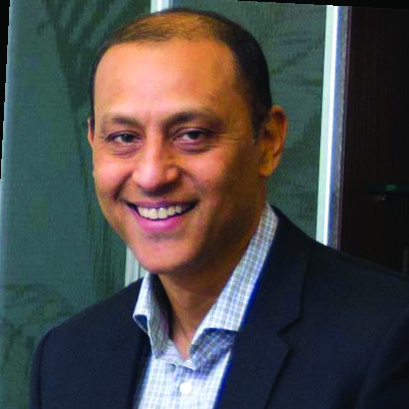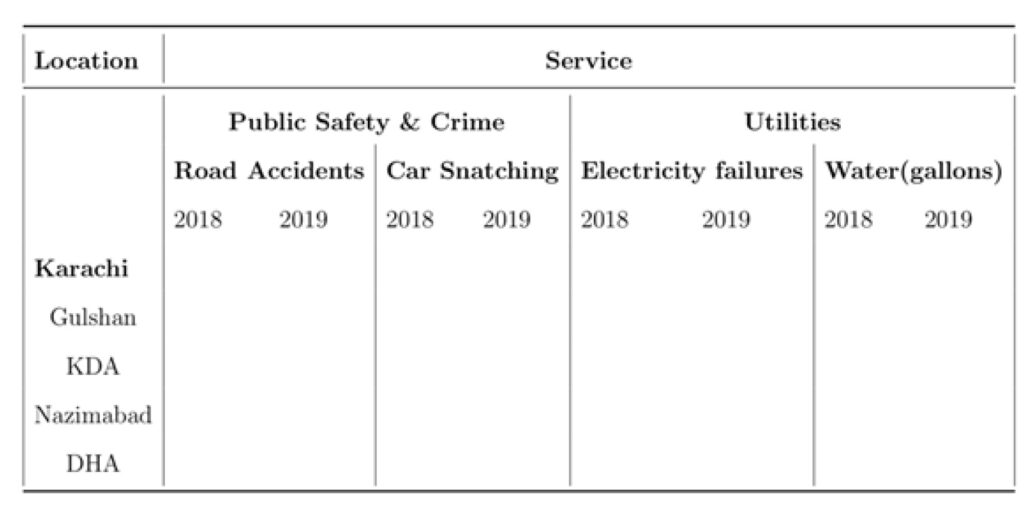
Accountability is a damaged word in Pakistan. Recent rains in Karachi brought out various aspects of public service delivery in this large city and people clamoured for accountability of various organisations involved with service delivery. The voices raised against the government and other service organisations have mainly been hysterical cries of anguish. While the frustration is easy to understand, some of us would like to use the opportunity to see how reform can take place to improve the situation in the coming days. Public service is a difficult job that is made even more complicated by local, provincial and federal level politics. The organisations which are supposed to cater to these basic daily needs are severely handicapped with resources and capability. Knowing this, where would one start if one was to start a process of reform? How can we improve the credibility of these organizations viz their consumers and public in general. How can these organisations make themselves more accountable to their consumers? I would like to address these difficult questions from a simple starting point. Data i.e. measurement of performance over time is the best place to start. Everything else follows.
We hear the government and the press mention numbers for GDP, exports, foreign debt or reserves and other similar information which may be of interest to some, but are Greek to a common man like me. And frankly, why would a common man be interested in these. I am not interested in budgets, growth rates, and fiscal deficits. To me, these are all terms created by clever economists to befuddle me. No, I am much more interested in the crime rate in my city or my locality. I am also interested in utilities supply to my area. How did they do in the previous years and how are they performing now? I want to understand what is the benchmark or targets that these service organisations are pursuing as surely, they must all be striving to achieve certain goals. But nothing like this is available- via a website or otherwise. Even the data which is available on a few websites is not presented in a user-friendly way, making it more difficult to ascertain true performance. Numbers must tell the story-the correct story-otherwise they are meaningless!
Most public service organisations have some sort of basic data about their service delivery. It is a matter of collecting, organising and presenting this information in the right manner. I looked up some large cities elsewhere to see how they judge performance. It is a long and varied list, but the most frequent measures which come up are; Public safety, service delivery, mobility, environment, business friendliness, arts and culture and many similar heads. There are strategic goals defined for each area and the main heads are divided into sub-components. Many cities are deploying the latest information and communication technologies using data for their smart city projects. But let us not get carried away. Let’s start at home from the very basics. Here is what we can start measuring and sharing with Pakistani citizens;
Public safety & Crime
The most valuable information for Pakistani citizens is about safety. Everyone should be able to see the numbers for road and public safety accidents in their cities. Crime rate, broken up into various categories, ought to be shared. Number of burglaries, car jackings and mobile phone snatching incidents occurred this year as compared to previous years. This information should be broken into various areas of the city so everyone can see the results for their respective locations. If I live in Gulshan in Karachi, I should be able to see the data for all of the above-mentioned in my locality. In this context, the more micro level the data, the better.
Utilities supply
Citizens should know the quantity of water supplied to their homes or apartment buildings. How many areas in their city and locality have proper sewage and how many gutters remain open? They should be told about the frequency of electric supply disruptions and their duration in their areas. How many times have they been impacted by unplanned shutdowns? What has been the gas supply into their home and how many times has there been low pressure which makes the supply irrelevant. All of this data should be available from the various utilities.
Transport
Although many readers of these pages may be fortunate enough not having to deal with public transport, the common person should be informed about the public transport available for them. How many trains and buses are available? What is the departure and arrival schedule and accuracy for these? How many accidents, if any have occurred and on which routes?
Garbage collection
This is a subject close to the hearts of Karachiites as there is much media attention being given to it and ministers are flying in from Islamabad to clean up Karachi overnight. While the concern of the government is appreciated, could they possibly start a process of sharing data on the quantity of garbage Karachi generated this year and how much has been picked up versus last year. Could they ensure that this is measured and reported every month? Could they also break this up into different geographic locations within the city?
I could go on as there are numerous other fundamental services which may be missing from this list. But consider this as a bare minimum-a starting point. I have tried to create a small scoreboard, as an example only to demonstrate what could be developed for a city or a metropolitan area or a tehsil and be shared with its citizens every month;

A few things to keep in mind when collecting data. First, in order for the data to be meaningful, it should be of several time periods (months/years) with each new period being compared to the previous ones. Second, the information ought to be broken into as small or as micro a level as possible. It would be great if citizens could see information about their own street and neighbourhood and not just the city. But the biggest challenge in this endeavour is to ensure the accuracy of the data being presented. I have seen organisations struggle with this despite the earnest desire to have accurate data. Sometimes the organisation does not have the capability to collect accurate data while at other times the accuracy suffers from limitations of instruments and technology being used. And there is always the chance of the numbers being fudged!
As most people will understand from this discussion, performance analysis using accurate data is a fundamental tool for improvement for any organisation. Cities are to be no different when we expect their performance to improve over time. State and city administrators at all levels will need to educate themselves to use new methods to improve. They could do this by undertaking training from various universities and institutes which should be creating curriculums for data studies. The other and perhaps more fruitful way could be to recruit younger IT/ data personnel into their folds. The young are more technology and data savvy and could create value from areas where the older generation won’t venture. Legal and regulatory ways will also need to be found to ensure that accuracy of the data would not be threatened under political pressure.
I am sure there are experts in this area who could improve on my suggestions and I would encourage for this to happen. My only point here is to urge governments to start taking steps in this direction. For governments which care about performance and their own political future, this is the only genuine accountability and a no brainer for them to provide evidence that they have been able to improve service delivery to the ordinary citizen.




















[…] […]
Comments are closed.